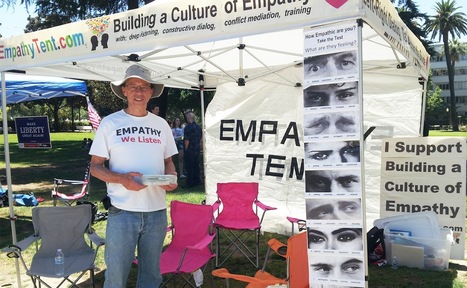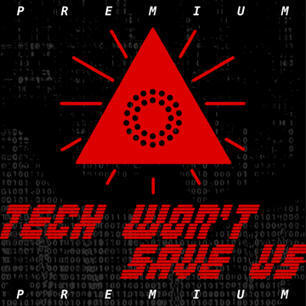 Your new post is loading...
 Your new post is loading...

|
Rescooped by
Edwin Rutsch
from Compassion
September 28, 2024 3:35 PM
|

|
Scooped by
Edwin Rutsch
May 14, 5:33 PM
|
Have you ever sensed someone’s emotions before they’ve said a word? As spring blossoms around us this May, it’s the perfect time for self-discovery and personal growth. Recent research in psychology reveals that empathic personalities often go unrecognized—even by themselves. While some people openly identify as empaths, many others possess these qualities without realizing how unique their emotional sensitivity truly is. As a clinical psychologist, I’ve observed that these individuals often feel different without understanding why.
THE SCIENCE BEHIND EMPATHIC PERSONALITIES
Empaths experience emotions differently than others. As psychiatrist Dr. Judith Orloff explains, “Empaths are naturally giving, spiritually open, and good listeners.” The neurological basis involves heightened mirror neuron activity, allowing empaths to essentially “feel” others’ emotions as their own. This emotional absorption can be both a gift and a challenge, especially during socially demanding spring activities that follow winter’s isolation.

|
Scooped by
Edwin Rutsch
May 12, 8:17 PM
|
A colleague shared with me a photo of a Post-it note with the words “Become Empathy Machines!” scrawled on it, taken at the Third Coast International Audio Festival in Chicago on Nov. 4, 2016.[1] It was two days after the stunning election of Donald Trump, and one of the podcasters or producers or radio journalists had written this message in response and pasted it to a wall as part of a makeshift Post-it note mural that sprang up to collect reactions and to identify ways forward in a country that suddenly seemed strange.

|
Scooped by
Edwin Rutsch
May 12, 12:00 PM
|
Shermin Kruse is here to talk to us about her latest book, Stoic Empathy. She shares what stoic empathy means and how the fusion of these seemingly opposing forces is particularly relevant today. She shares her personal story and how her immigrant journey shaped her understanding of empathy and stoicism. Sher also talks about how she leveraged stoic empathy as a lawyer to great success. We discuss practical tools for building influence and emotional regulation that you can start using today with your employees – or your partner or kids!
Whether you’re a corporate leader, educator, parent, or simply seeking tools to navigate personal and professional challenges with integrity, you will love this conversation!

|
Scooped by
Edwin Rutsch
May 11, 8:44 PM
|
The world would be a better place if we had more empathy for one another. The more you learn about another’s history and burdens, the better you can understand why they act the way they do. Perhaps the adage is true that to know all is to forgive all. Compassion springs from understanding, and understanding from identifying with the other, and somehow finding yourself in the other and the other in yourself.

|
Scooped by
Edwin Rutsch
May 11, 8:38 PM
|
Purpose Empathy can be divided into cognitive empathy (CE) and affective empathy (AE). CE is defined as the accurate understanding and appropriate response to others’ thoughts whereas AE is defined as the accurate understanding and appropriate response to others’ emotions. The overall purpose of this systematic review and meta-analysis is to assess the effectiveness of empathy interventions in physicians and physicians-in-training in increasing CE and AE. Specifically, we are interested in examining whether specific teaching methods and intervention designs may contribute to greater empathy intervention effectiveness for CE and AE outcomes. Method Studies searched included randomized controlled trials conducted between 1971 to 2022 examining empathy interventions for medical students and physicians. Thirty-six studies, consisting of 3,833 participants, met the inclusion criteria. Data were analysed using random-effects pairwise meta-analysis. Results Empathy interventions have moderate effect sizes on both CE [d = .50 (95% CI = .30, .70)] and AE [d = .46 (95% CI = .30, .62)]. Heterogeneity of effects was evident for both analyses.

|
Scooped by
Edwin Rutsch
May 11, 6:25 PM
|
Empathy and its subcomponents are well documented throughout the animal kingdom, indicating the deep evolutionary origins of this socioemotional capacity. A key behavioural marker of empathy is consolation, or unsolicited bystander affiliation directed towards distressed others. Consolation has been observed in our closest living relatives, bonobos (Pan paniscus) and chimpanzees (P. troglodytes). However, systematic comparisons are absent, despite potential for interspecific differences. Bonobos are often considered less aggressive, more emotionally sensitive, and more socially tolerant than chimpanzees—key characteristics purported to drive consolation

|
Scooped by
Edwin Rutsch
May 10, 10:37 AM
|
Empathy: the ability to understand and share the feelings of others. In these past few years, it seems as if empathy is being demonstrated much less in children. They’ve been growing up with a lack of it compared to other generations. Every child is known to be taught many values at home, empathy being a major one. But how effective is empathy truly on younger generations?
Many argue that with the rise of technology, many children have started to isolate themselves from the world. As humans, we rely on social interactions to go on with our lives. Many have begun to stray away from verbal interactions for conversations through a screen. This has made many lose communication with kids and interactions decrease.

|
Scooped by
Edwin Rutsch
May 10, 10:34 AM
|
by Thom Hartmann Empathy is the ability to experience what another person is going through as a real sensation, a genuine emotion or even physical reaction, in body and mind. It’s what causes us to flinch or look away when we see a dog getting hit by a car or a fellow human experiencing real trauma.
Early on in my years rostered as a psychotherapist in the 1980s, I learned that there’s a subset of the human race — maybe we should call them “Lizard People” because they’re so cold-blooded — who literally lack the ability to experience what others are going through. Instead of being empathic, their processing of other people’s pain (or joy or elation or any sensation or emotion) is entirely intellectual.

|
Scooped by
Edwin Rutsch
May 10, 10:31 AM
|
Paris Marx is joined by Julia Carrie Wong to discuss Elon Musk’s recent opposition to empathy, how it comes out of the Christian right

|
Scooped by
Edwin Rutsch
May 8, 8:37 PM
|
My review of Joe Rigney’s The Sin of Empathy garnered quite a bit of interest. A lot of it was positive. Some of it… not so much.
Of course, there was the (predictable) trolling from anonymous male accounts on Twitter/X. My approach there was simple. Ignore. Block. Carry on with my life.
But there were also those who readily dismissed my review, in toto, for one of two reasons:

|
Scooped by
Edwin Rutsch
May 8, 8:35 PM
|
A yes-or-no answer doesn’t serve us. - Alastair Roberts - Start a free trial today for full access.

|
Scooped by
Edwin Rutsch
May 8, 8:14 PM
|
Once More Unto the Empathetic Breach
written by Joseph Rigney | May 7, 2025
A Response to Critics
Generally, authors welcome engagement with their views, if for no other reason that such interaction shows that their work has touched a nerve. That’s certainly the case with my work on empathy over the years. Since the release of The Sin of Empathy, I’ve seen a number of criticisms of the work. Some of them, such as Russell Moore’s recent article, don’t even bother to attempt to understand the arguments, but are content to vaguely strawman unidentified fellow Christians. Dr. Moore’s failure of imagination when it comes to the dangers of untethered empathy is particularly ironic since he commends empathetic imagination. And his claim that those (like me) who criticize empathy in the modern world are liberals is, well, something else.
|

|
Scooped by
Edwin Rutsch
May 15, 12:13 PM
|
by Kieran Donaghy,
This paper aims to show that empathy is central to successful language learning and to making language teaching a more compassionate and fairer profession. I begin by exploring what empathy is, its three main components: cognitive empathy; affective empathy and empathetic concern, and its neurological foundations.
I draw on general education literature to present what research findings suggest about the role of empathy in education and the characteristics of empathic teachers. I then draw on language education literature and research to support my argument that empathy is particularly important in language education. I examine whether there is an empathy deficit in language teaching and look at hindering factors that may make it challenging to embed a culture of empathy in the profession.
Finally, moving from theory to practice, I explore how we could explicitly develop empathy as a skill among teacher trainers, teachers and learners.

|
Scooped by
Edwin Rutsch
May 14, 2:20 PM
|
When
Day 1: Monday, May 19, 2025, 11 a.m. - 3 p.m. (UTC-04:00) Eastern Time (US & Canada)
Day 2: Wednesday, May 21, 2025, 11 a.m. - 3 p.m. (UTC-04:00) Eastern Time (US & Canada)

|
Scooped by
Edwin Rutsch
May 12, 12:04 PM
|
When you think of workplace wellness, you may picture gym memberships and yoga mats. But joy, empathy, and inclusion also create a healthy and high-performing workplace culture! We need to reimagine what wellness means!
Today, Misha Safran, shares how empathy intersects with inclusion to foster innovation and equity. We also discuss how to reframe the misconceptions about empathy that exist in high-pressure workplaces. With brilliant mindset shifts and practical tips, she shares how leaders can model empathy without feeling performative, and how to navigate conflict using empathy and emotional intelligence. Misha shares the four elements of joy and why you can be more successful when you embrace them so your team can break free from chaos and transform that energy into creativity, problem-solving, and success.
To access the episode transcript, please scroll down below.
Key Takeaways:
Empathy is love, care, and concern – not agreement. It’s having conversations, it’s listening to know what’s going on, and it’s having healthy boundaries.
Empathy before accusation.
Empathy might look different depending on personality – it doesn’t have to mean being touchy-feely or crying on the floor with your employees.
Especially in conflict, urgency causes chaos – slow down, take a pause, take a breath, and respond, don’t react. Slow down to build up.

|
Scooped by
Edwin Rutsch
May 11, 8:45 PM
|

|
Scooped by
Edwin Rutsch
May 11, 8:42 PM
|
Background Medical curriculum development rarely involves patients, educators, and students, meaning that key stakeholders' voices are not adequately represented in curricular content. In this paper, we describe the co‐production of an empathy‐focused medical curriculum involving patients, educators, and students. Approach We adopted the National Institute for Health Research co‐production principles to develop three curriculum streams: 1) delivering evidence‐based empathy lectures, 2) involving patients in biomedical science teaching, and 3) implementing longitudinal empathic communication and clinical skills teaching. Patients, educators, and students were purposefully sampled from one medical school. At least one co‐production workshop was conducted for each curriculum stream, combined with written engagement.

|
Scooped by
Edwin Rutsch
May 11, 8:34 PM
|
“For a long time, bonobos have been thought of as the more empathic ape, whilst chimpanzees are typically spoken about as the violent, despotic ape.
“However, we found that chimpanzees are just as likely to console one another as bonobos,” explained Dr Jake Brooker, who led the study. Age plays a crucial role in the empathy of these great apes. In both bonobos and chimpanzees, the youngest are the first to offer comfort to their peers.
Young bonobos are both more likely to comfort and to be comforted, whereas in chimpanzees, this role is mainly taken on by young males and close social partners.
These empathic behaviours are expressed through simple but evocative gestures, such as embracing, hand grasping and touching… behaviours reminiscent of humankind’s own.

|
Scooped by
Edwin Rutsch
May 11, 1:31 PM
|
John Nosta Empathy might be shifting under AI’s influence. In Artificial Empathy, I explored how AI mimics human emotions. Then the Empathy Algorithm asked whether it could surpass us. In AI and the Empathy Economy, I examined how AI is reshaping industries, and the Empathy Apocalypse questioned whether AI’s emotional power would stabilize society—or break it. The key question is whether AI helps maintain a stabilizing balance of human empathy or disrupts it, pushing the system toward instability.

|
Scooped by
Edwin Rutsch
May 10, 10:36 AM
|
This volume is concerned with theories of emotions that can be described as empathetic ones, either because they presuppose the human capacity for empathy or because they are essential to how empathy operates. By looking at how philosophers in the history of Western philosophy from Ancient Greece up to the twentieth century have understood these emotions, it becomes possible not only to gain a deeper understanding of certain empathetic emotions and their relation to the concept of empathy, but also to see how these emotions are placed within a broader moral, social, or religious context. Taking into account this context is essential when it comes to engaging with such issues as whether sympathy provides an adequate basis for a theory of human sociability and fellowship, how compassion and pity play key roles in moral life and in the formation of the practical identities of human beings, roles that have been both positively and negatively evaluated, and whether the altruistic character and concern for others that have traditionally been ascribed to certain emotions can be reconciled with competing values such as self-love and the self-directedness of its concerns.

|
Scooped by
Edwin Rutsch
May 10, 10:33 AM
|
This week I heard more than once the growing narrative that empathy is a weakness, or worse, a “sin.” Even seeing those words on the page makes me wince. The attempt to frame caring about people as a flaw or a problem comes from a place of malintent, and that’s why I value the history, research, and even pop culture that make it undeniable: caring about people matters. It feels like such an obvious thing to say, but sometimes we need to check in and make sure we’re clear. I’ll put my social worker hat on for a sec and just for clarity say, empathy isn’t about abandoning reason or “taking on” someone else’s pain. It’s about recognizing our shared humanity and choosing to care.

|
Scooped by
Edwin Rutsch
May 10, 10:30 AM
|
Empathy.
It’s one of the buzzwords of our culture right now. Everyone wants to receive empathy or to be seen to be empathetic. But what is it? And can we describe Jesus as empathetic?
First, a definition from dictionary.com
Empathy
Noun
The psychological identification with or vicarious experiencing of the emotions, thoughts, or attitudes of another.
I FEEL YOUR PAIN
I feel your pain. Really? Do you? This is our common understanding of empathy, but it’s mistaken. ‘Vicarious’ communicates the idea that we use our imaginations to participate in the experience of others. That’s not the same as actually feeling my pain. It just isn’t.

|
Scooped by
Edwin Rutsch
May 8, 8:36 PM
|
Joe Rigney's 'Sin of Empathy' collapses under the weight of its own internal contradictions and inconsistencies.

|
Scooped by
Edwin Rutsch
May 8, 8:29 PM
|
In this episode of Tech Won’t Save Us, we are joined by Julia Carrie Wong to discuss Elon Musk’s recent opposition to empathy, how it comes out of the Christian right, and the relationship it has to previous discussions of longtermism.

|
Scooped by
Edwin Rutsch
May 8, 8:12 PM
|
During his most recent appearance on Joe Rogan’s podcast, Elon Musk levelled a critique at empathy, calling it “the fundamental weakness of western civilization.”
If your first instinct is to brush this off as another example of Musk’s awkwardness, we suggest you think again. As journalist Julia Carrie Wong noted in The Guardian in April, Musk’s comments have appeared “amid a growing wave of opposition to empathy from across the American right.”
A diverse coalition of figures have taken up this “war on empathy,” including pastor Joe Rigney, conservative podcaster Allie Beth Stuckey and marketing professor Gad Saad.
Each has coined their own meme-able phrase: “The Sin of Empathy,” “Toxic Empathy” and “Suicidal Empathy,” respectively.
|






 Your new post is loading...
Your new post is loading...



























